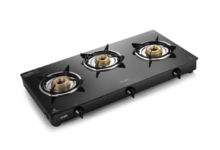
What the Flush! How to Tell if You Have Drain Line Backup
Whether you’re connected to the city sewer lines or are one of the one-in-every-five Americans who depend on septic systems, a blocked drain line can be more than an expensive nuisance. Untreated sewage leaking into your home or property is a health hazard.
However, the good news is that if you catch a drain blockage early, you can save money on the repair and safeguard your family’s health simultaneously. Read on to learn how to spot a backup before it becomes dangerous.
Table of Contents
Sinks Backing Up
One of the first signs that your sewer system is encountering problems is slow-flowing water.
We’re not talking about the water that comes from your tap, but the water that goes down the sinkhole or toilet bowl. If you see that distinctive drain spiral slowing to a crawl instead of a whirling mini hurricane, you may have a blocked drain line.
To see if you have a mainline problem or just a problem with a single pipe, check all your sinks for slow draining or backup—from your kitchen to your bathroom to your laundry room.
Malfunctioning Toilet and Other Fixtures
When you flush the toilet, do you notice water bubbling up out of the bathtub drain hole? This is a clear sign of a serious blockage somewhere along your plumbing lines—even if you don’t see water coming up through your kitchen sink.
That’s because the low-lying pipes, such as those running to your toilet and bathtub, will be the first to be affected by a blockage.
When all your plumbing fixtures are disrupted simultaneously, it’s time to jump on your computer and enter “septic services near me” into that Google search!
Foul Odors
At first, you may blame another family member for the weird smells coming out of the bathroom—especially if they like to spend a lot of time on the toilet! But if the odors persist instead of coming and going, it could signal you have a drain line blockage.
When water is backed up or trickling through a pipe, bacteria, mold, and decomposing waste build up at the site of the blockage. These processes produce bad-smelling gases that make their way through your lines and into your home.
Gurgling Noises from the Drain
Do you hear any sounds when your toilet or sink empties? If you’re hearing bubbling, gurgling, whistling, squeaking, or sudden emptying, know this isn’t normal. Your drains shouldn’t make a sound when they move water from your sink to the septic tank or city sewage system.
Checking how far along the pipes you can hear these noises—even through the ground in your backyard—can help you determine where the blockage is.
A Blocked Drain Line: More Than Just a Nuisance
From gurgling toilets to disgusting smells infiltrating your bathroom or kitchen, knowing the signs of a blocked drain line can save your bank account and your health. If you recognize the problem before it gets out of control, you may be able to fix it yourself or consult a professional early.
For more helpful homeowner advice, head back to our website and browse our other articles.








